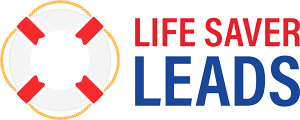Respecting privacy and adhering to regulations are critical ethical considerations for any organization, especially when dealing with sensitive information such as life saver leads, which could involve health or safety-related data. Here are some key principles to consider:

- Informed Consent:
- Obtain explicit and informed consent from individuals before collecting or using their life saver leads data. Clearly communicate the purpose of collecting the data, how it will be used, and any potential risks involved.
- Transparency:
- Be transparent about your data practices. Clearly communicate your privacy policies and procedures to users, ensuring they understand how their data will be handled and protected.
- Data Minimization:
- Collect only the data that is necessary for the intended purpose. Avoid unnecessary or excessive collection of information, and regularly review the data you hold to ensure it remains relevant.
- Security Measures:
- Implement robust security measures to protect life saver leads data from unauthorized access, disclosure, alteration, and destruction. This includes encryption, access controls, and regular security audits.
- Compliance with Regulations:
- Stay informed about and comply with relevant data protection and privacy regulations, such as the General Data Protection Regulation (GDPR), Health Insurance Portability and Accountability Act (HIPAA), or any other applicable laws in your jurisdiction.
- Data Ownership:
- Clearly define and communicate who owns the life saver leads data. Ensure that individuals have control over their own data and can request its deletion or correction.
- Data Retention and Deletion:
- Establish clear policies for the retention and deletion of life saver leads data. Ensure that data is not kept longer than necessary for the intended purpose.
- Training and Awareness:
- Provide regular training to employees regarding privacy policies, data protection laws, and ethical considerations. Foster a culture of privacy and data protection within the organization.
- Third-Party Vendors:
- If you share life saver leads data with third-party vendors, ensure they adhere to the same privacy and security standards. Conduct due diligence on their practices and ensure contractual agreements include appropriate data protection clauses.
- Incident Response:
- Develop and regularly test an incident response plan to address potential breaches or unauthorized access to life saver leads data. Have a process in place to notify affected individuals and regulatory authorities if a breach occurs.
- Regular Audits and Assessments:
- Conduct regular privacy audits and assessments to ensure ongoing compliance with regulations and ethical standards. This includes reviewing and updating policies as necessary.
By prioritizing these ethical considerations, organizations can build trust with individuals, comply with regulations, and contribute to a culture of responsible data handling and privacy protection.

Recent Comments